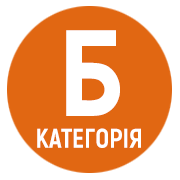ON THE TERMINOLOGY OF THE HOLOCAUST
DOI:
https://doi.org/10.32999/ksu2786-5118/2023-41-10Keywords:
genocide, Holocaust, Сatastrophe, Shoah, Hurbаn, Auschwitz, “the final solution of the Jewish question”, NazismAbstract
The purpose of the study is to analyse the international terminological base in different directions and approaches to defining definitions related to the tragic fate of European Jews during the Second World War. Since the modern scientific field contains diverse work on certain issues, the authors of this study focused their attention on the works that, in their opinion, are of some interest in outlining the definitions of the Holocaust, as professional scientific competence requires the observance of terminological unity as an indispensable component of it. Methods. In order to systematize the terminological apparatus of historical-scientific research, the study is performed in the context of a problem-thematic approach using general scientific methods of analysis and synthesis, which ensured the achievement of the purpose. Results. Terminology occupies a special place in the system of modern scientific knowledge, and the unambiguity of the terms indicates orderliness and accuracy. However, in practice, terms often acquire multiple meanings. One wordterm serves to express different concepts or events. In particular, the term genocide is used both in relation to the tragedy of European Jewry during the Second World War and in relation to the Holodomor in Ukraine. And, on the contrary, there are often two or more terms to denote the same concept, event, or phenomenon. An example of such usage is Holocaust, Catastrophe, Shoah, Hurban, when it refers to the mass extermination of the Jewish population by the Nazis during the Second World War, and not to other tragic events in the history of the Jewish people. Based on the unprecedented nature of the events, an apt term for the scientific use of the indicated problem, which would be understandable and with which the majority of scientists would agree, is substantiated. Conclusions. Currently, the term Holocaust is more familiar and understandable to most scholars, but there is still debate among researchers regarding its definitions. The term genocide was used in the first post-war years, which caused a lot of controversy. Leading specialists in the study of this problem proposed the terms Catastrophe, Shoah, Hurban; the last two from the late 1960s and early 1970s gave way to the Holocaust. In general, the term Holocaust, in our opinion, has a clear motivated definition, remains the most widely accepted and used in the world, and since the end of the 20th century and in Ukrainian historical science as well, which does not exclude the possibility of using the term Catastrophe.
References
Bergen D. War and Genocide: A Concise History of the Holocaust. Lanham, MD, 2016. 384 c.
Convention on the Prevention and Punishment of the Crime of Genocide. United Nations / Office on Genocide Prevention and Responsibility to Protect. URL: https://www.un.org/en/genocideprevention/genocideconvention.shtml (дата звернення: 17.02.2023).
Lemkin R. Axis Rule in Occupied Europe: Laws of Occupation, Analysis of Government, Proposals for Redress. New York, 2014. 674 р.
Michman D. ‘The Holocaust’ – Do We Agree What We Are Talking About? Holocaust Studies. 2014. 20:1–2. Р. 117–128.
Michman D. Why Is the Shoah Called ‘the Shoah’ or ‘the Holocaust’? On the History of the Terminology for the Nazi Anti-Jewish Campaign. The Journal of Holocaust Research. 2021. 35:4. Р. 233–256.
Encyclopedia of the Holocaust / Eds. Rozett, R. Spector, S. Jerusalem, 2000. URL: https://www.yadvashem.org/holocaust/resource-center/lexicon/h.html (дата звернення: 17.02.2023).
Steinhart E. The Holocaust and the Germanization of Ukraine. Cambridge, 2015. 263 р.
Weiss-Wendt А. When the End Justifies the Means: Raphaël Lemkin and the Shaping of a Popular Discourse on Genocide. Genocide Studies and Prevention: An International Journal. 2019. Vol. 13: Iss. 1: Р. 173–188.
Wiesel Elie. Night. 2006. 120 р.
Арад И. Катастрофа евреев на оккупированных территориях Советского Союза (1941–1945). Днепропетровск, 2007. 816 с.
Арад И. Холокост. Катастрофа европейского еврейства (1933–1945). Сборник статей. Иерусалим, 1990. 165 с.
Бауер Є. Місце Голокосту в сучасній історії. Поза межами розуміння / богослови та філософи про Голокост. Київ, 2009. С. 54–83.
Гутман И., Шацкер Х. Катастрофа и ее значение. Иерусалим, 1990. 287 с.
Еврейский геноцид на Украине в период оккупации в немецкой документалистике 1941–1944 гг. / Авт.- сост. А.И. Круглов. Харьков– Иерусалим, 1995. 291 с.
Михман Д. Юдофобия и антисемитизм. Катастрофа европейского еврейства. Части 1–2. Иерусалим, 1995. С. 3–109.
Краткая еврейская энциклопедия. Т. 10. Иерусалим, 2001. 1120 с.
Круглов А.И. Хроника Холокоста в Украине 1941–1944 гг. Запорожье, 2004. 208 с.
Круглов А., Уманский А., Щупак И. Холокост в Украине: Рейхскомиссариат «Украина», Губернаторство «Транснистрия» : монография. Днипро, 2016. 564 с.
Мише Аб (Кардаш А.) Шоа. Ядовитая триада. Иерусалим, 2014. 227 с.
Подольський А. Дослідження з історії Голокосту в сучасній українській історіографії: нові підходи. Катастрофа і опір українського єврейства: Нариси з історії Голокосту і Опору в Україні. Київ, 1999. С. 26–38.
Подольський А. Українське суспільство і пам’ять про Голокост: спроба аналізу деяких аспектів. Голокост і сучасність. Студії в Україні і світі. 2009. Том 1, випуск 5. С. 47–59.
Розенблат Е. Основные проблемы терминологии темы Холокоста. Материалы одиннадцатой ежегодной международной конференции по иудаике. Ч. 1. Москва, 2004. С. 341–355.
Сборник документов и материалов об уничтожении нацистами евреев Украины в 1941–1944 годах / Сост. А. Круглов. Киев, 2002. 485 с.
Тальмон И. Истоки катастрофы и возрождения. АМИ. Альманах. 1973. № 3. С. 35–56.
Тригуб О. Богданівська трагедія словами очевидців. Богданівські читання – 2017 : збірник матеріалів, підготовлений у рамках відзначення Міжнародного дня толерантності. Миколаїв, 2017. С. 136–138.
Факенгейм Е. 614 заповідь. Поза межами розуміння / богослови та філософи про Голокост. Київ, 2009. С. 327–333.
Холокост. Убийство евреев в 1933–1945 гг: документы, свидетельства, литература / сост. и ред. А. Кардаш. Москва, 2003. 410 с.
Хоптяр А. Голокост у Кам’янець-Подільській області: хронологія, механізми, методи винищення єврейського населення (липень 1941 – січень 1943 рр.). Український історичний журнал. 2020. № 3. C. 90–102.



